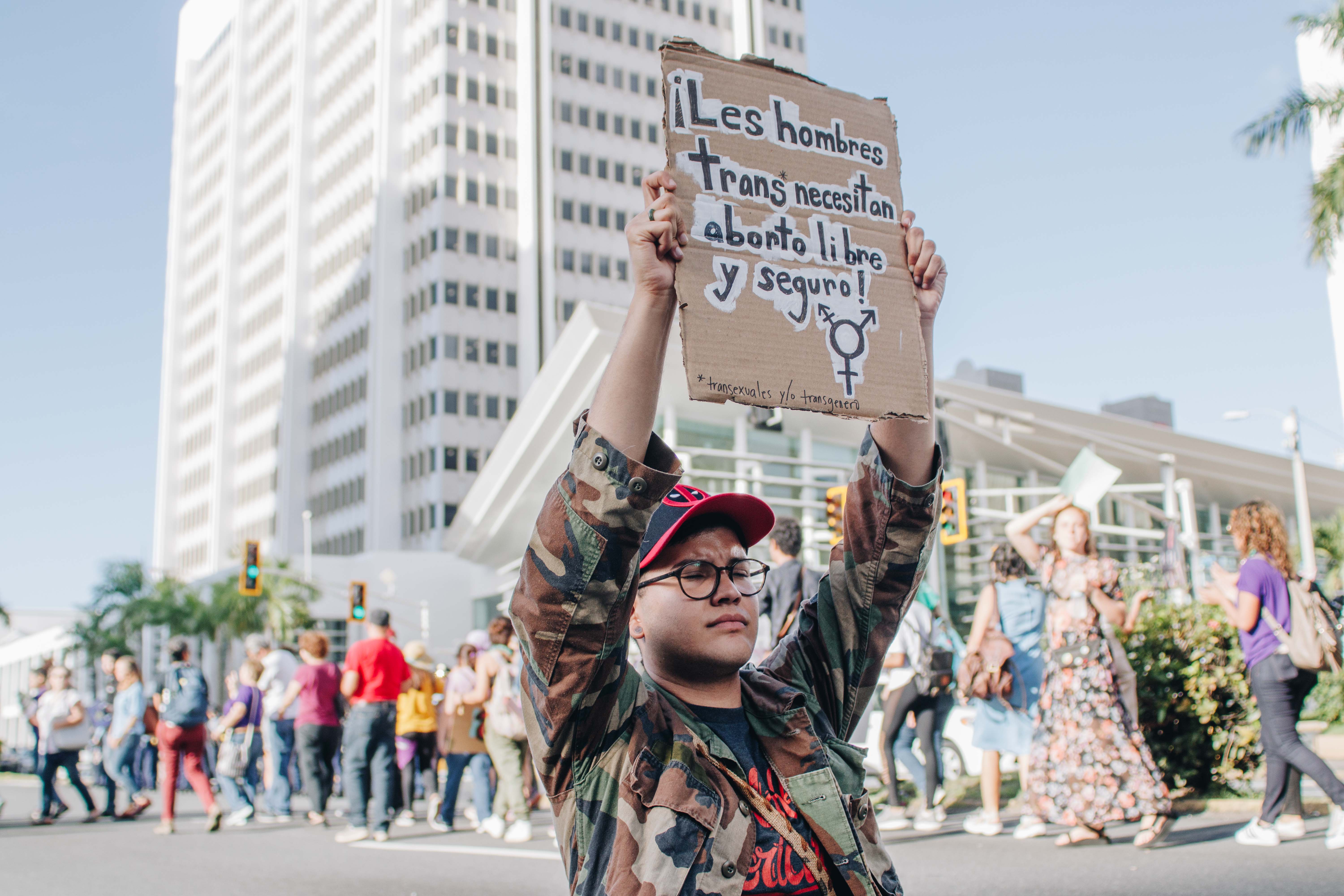Every International Women’s Day commemoration is different, and telling: Mobilizations reflect the most pressing matters to the feminist community of a specific place. In Puerto Rico, the macro issue this year is a monolith of capitalism and colonialism that impinges on all: The $120 billion its government owes in bonds and pension liabilities.
Contra la Deuda was the call under which Puerto Ricans were rallied to strike last Friday by the March 8 Coalition, comprised of activists from multiple movements. Hundreds of people gathered that afternoon at the Milla de Oro, San Juan’s financial district, for the day’s main concentration, which included energized picketing, bomba y plena, and speeches.
But unlike in years past, and different from other marches and mobilizations, the intersectionality of issues – and of people – was at the forefront, which signals a change taking place throughout the island’s resistance movement.
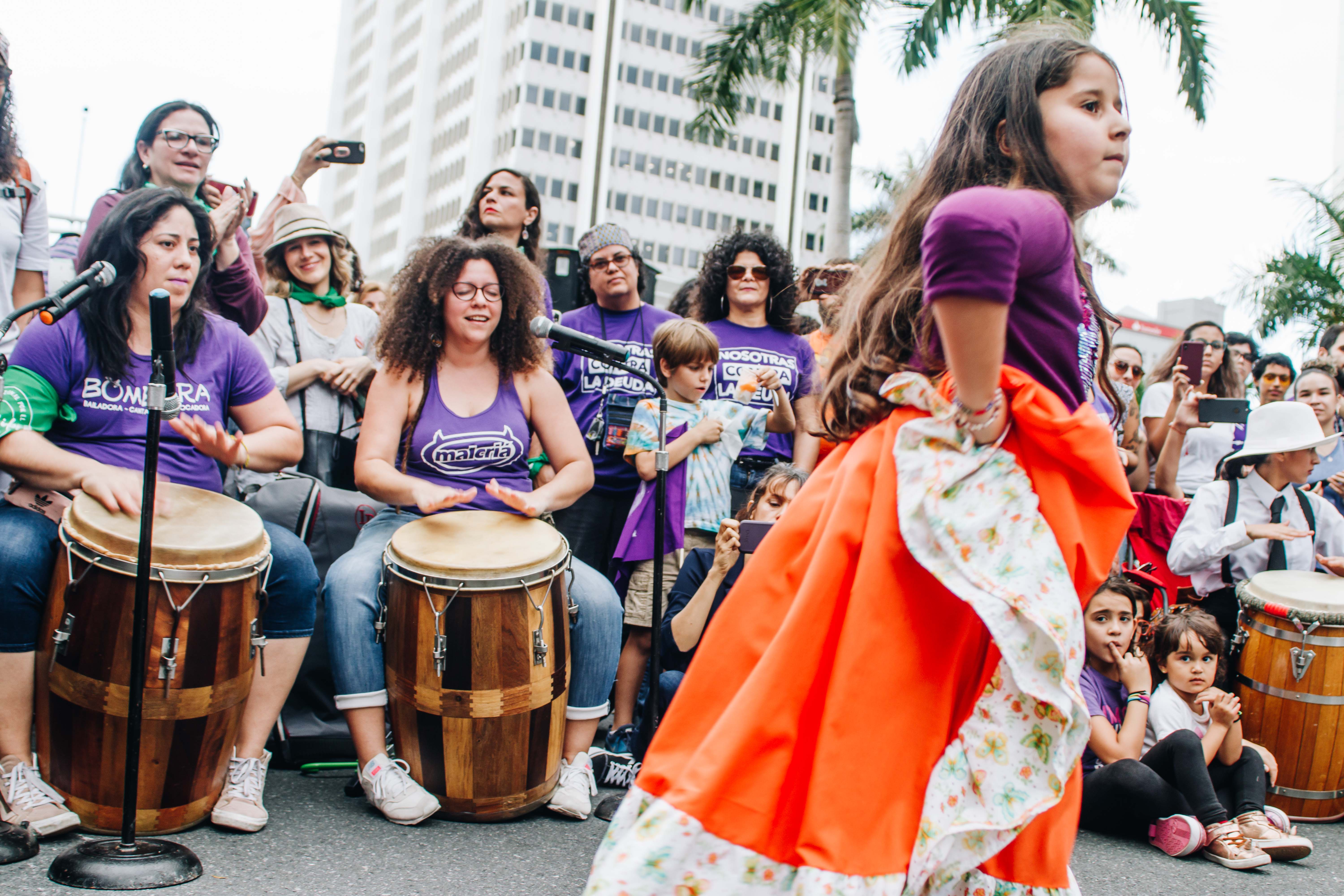
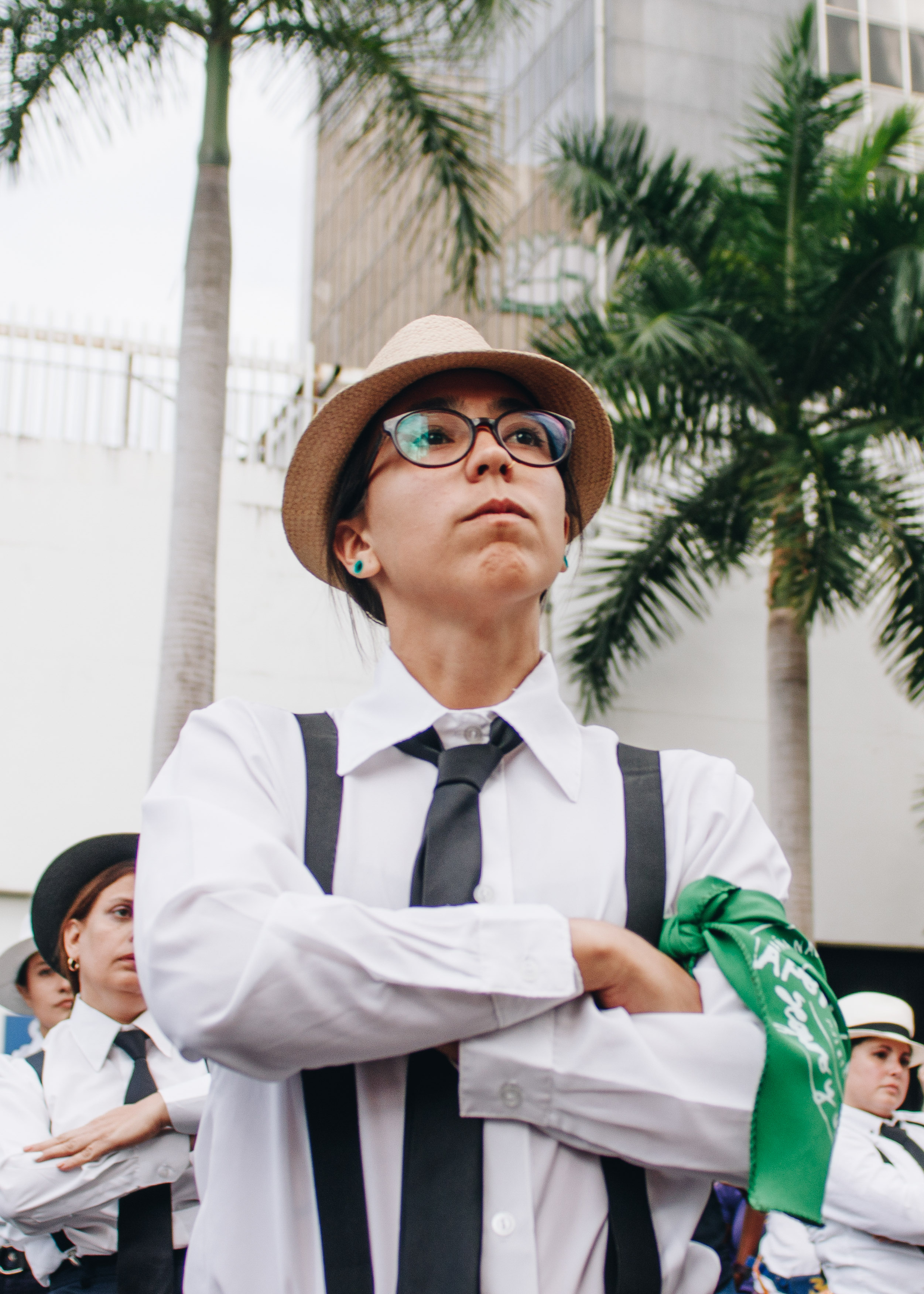
The changes translated to a renewed sense of inclusion for the most marginalized of identities, who are disproportionately affected. For the first time, Nicolás Sierra-Trujillo, a 25-year-old genderfluid trans man, felt a connection to the people with whom he protested.
“I am very proud of my female upbringing, and all that it entailed,” he says. “So I felt like I belonged there, but this is the first year where I truly felt like I was accepted.”
Within the overarching call for the nullification of the debt – which has not been independently audited, and which experts have found to be, at least in part, accrued illegally – eight other major claims – like condemnations of mass public school closures and significant budget cuts at the University of Puerto Rico, to designating as an essential service the addressing of the island’s high rate of gender-based violence, and the right to bodily autonomy and denouncement of current legislation that would restrict abortion access – were also named in the coalition’s official statement.
Sofia Gallisá Muriente, co-director of arts nonprofit Beta-Local, felt the intersectionality this year was “really powerful.” “The debt and capitalism and colonialism and neoliberalism: All of these things are brought into the fold,” she says.
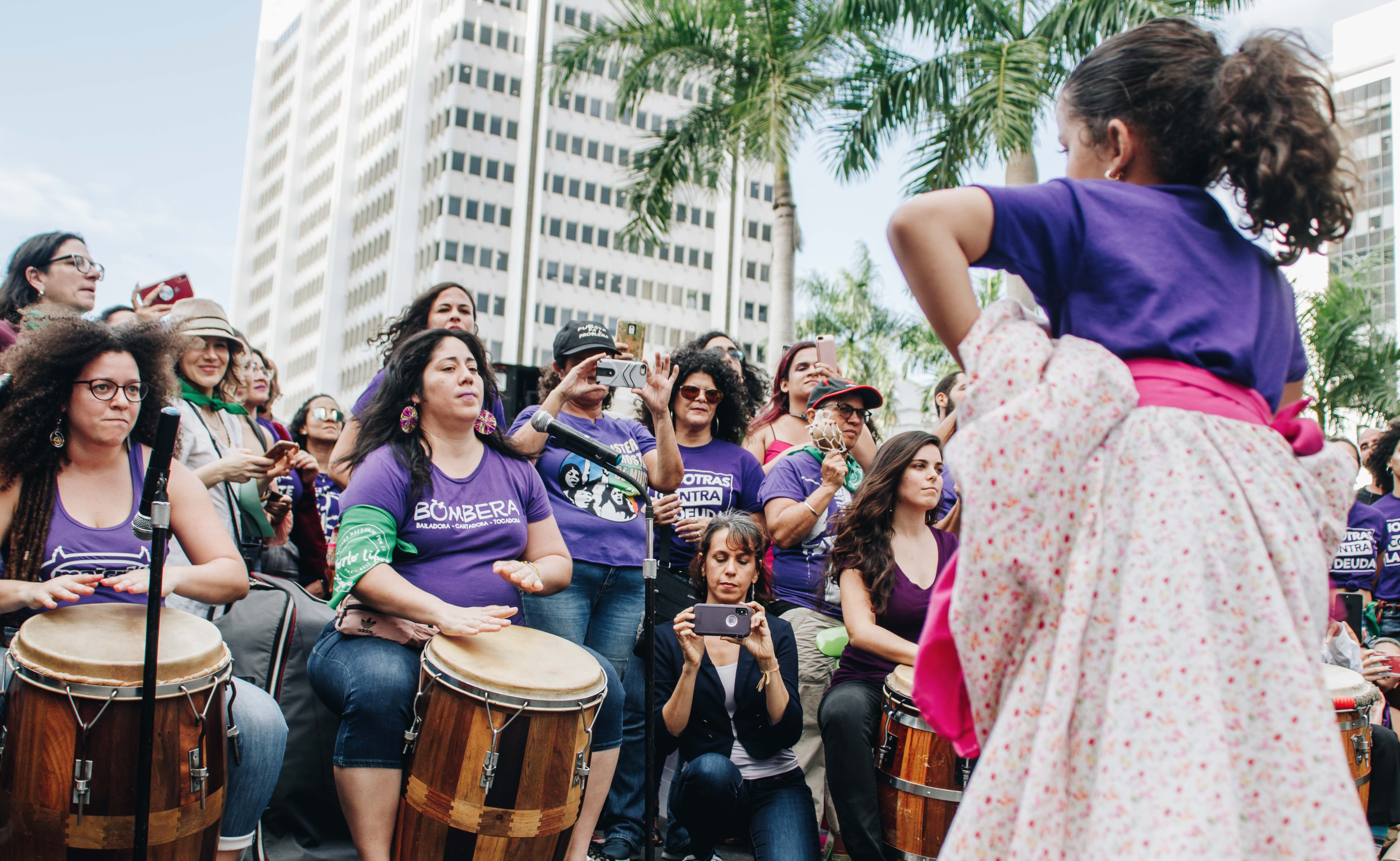
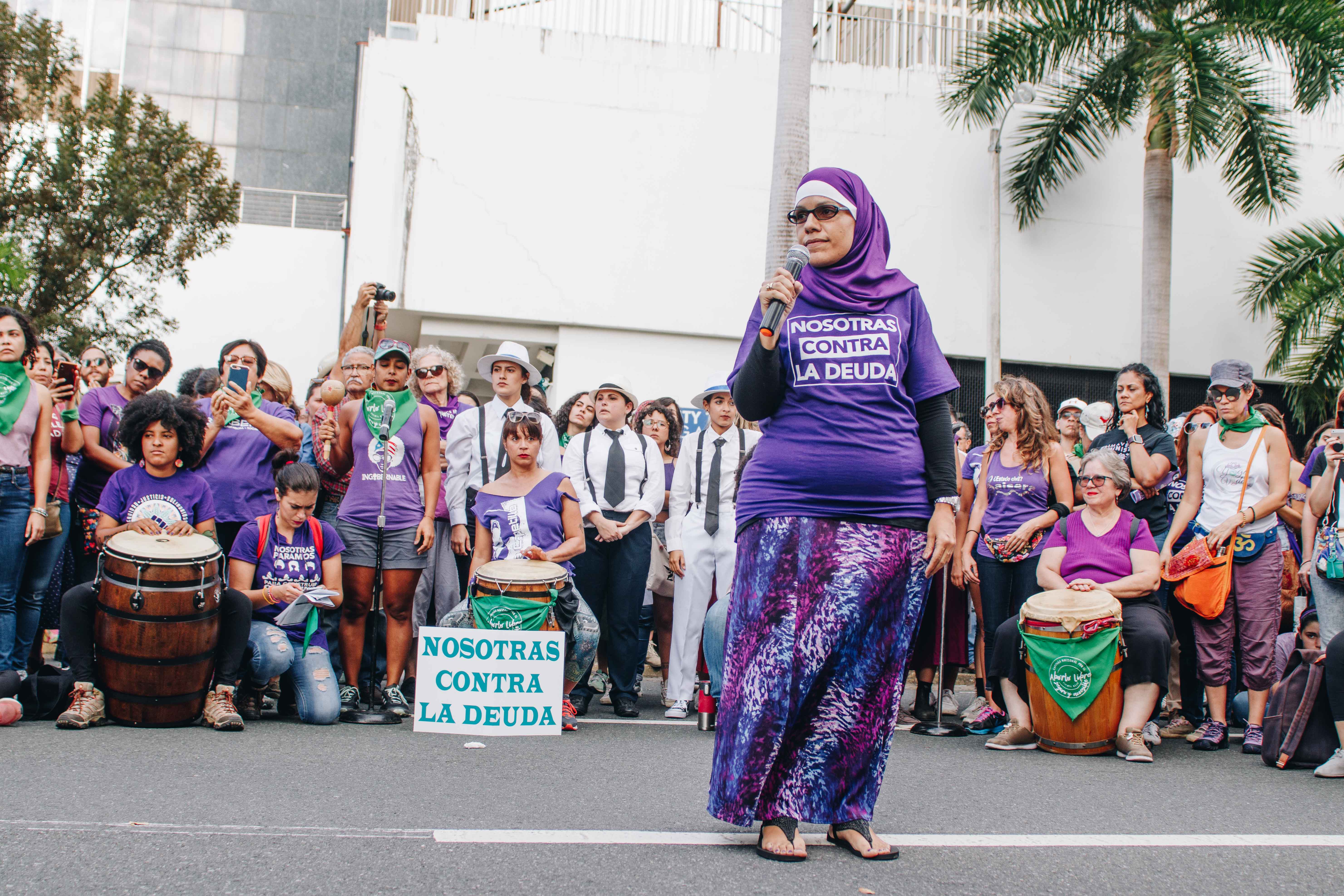
Having participated in multiple actions with the Colectiva Feminista en Construcción before – including the 2017 International Women’s Day blocking of traffic along a major metropolitan expressway – Gallisá Muriente readily joined another demonstration before the Milla de Oro concentration. Directed against the banks complicit in the island’s debt, the Colectiva gathered protestors at Plaza las Americas, the island’s biggest mall, before traveling to the Federal Court in Hato Rey.
The group was a multigenerational one, Gallisá Muriente says. Her mother, who comes from a background of pro-independence activism, also participated: “There’s a lot of space for that to happen,” she says. “I think it’s really necessary and important and valuable.”
More events were held around the island: By 8 a.m. a protest led by the nonprofit teacher’s syndicate EDUCAMOS was underway in San Juan at the Department of Education, and later the Teachers Retirement System; on the southern coast, a discourse began around health hazards and the debt, including contamination by the carbon-powered AES Puerto Rico plant, was held in Tallaboa, Peñuelas, convened by long-standing feminist organization Taller Salud; on the island’s west side, International Women’s Day events kicked off a day earlier with hundreds marching from the Mayagüez campus of the University of Puerto Rico to the town plaza, then a concentration on March 8, and closing with a transfeminist market on Saturday.
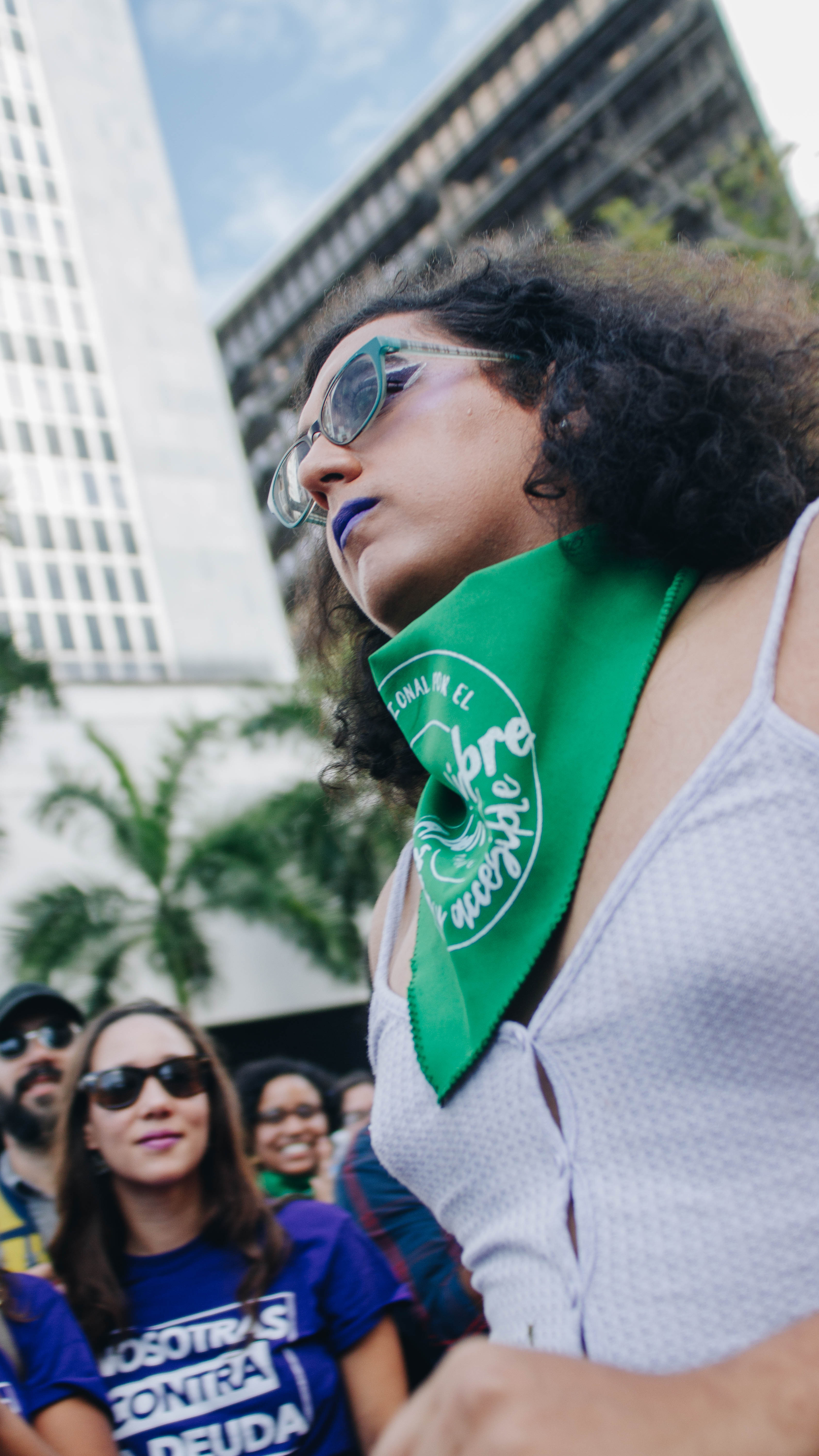
“It was really amazing, not just the Colectiva, but Taller Salud choosing to spend the day working with women in Peñuelas that have been protesting coal ash – and other folks,” Gallisá Muriente says. “I thought it was really amazing that that was what the day was about, and the different groups tackled it in different ways with a real kind of understand of the importance of that intersectionality.”
At the Milla de Oro concentration, chants demanding the separation of church and state flowed into the denouncing of discrimination against any gender identity, there were condemnations of the US-appointed Fiscal Oversight Board and its austerity measures between the uplifting of immigrant women and families, and macharranes were admonished alongside messages of hope for a liberated future through protest. Inclusive language was used often, if not uniformly – the gender-neutral todes instead of todas, for example.
The addition of a Pasarela de Putxs, where any and all were invited to ham it up on a red carpet unfurled onto the street, was another move toward centering marginalized identities. Inspired by SlutWalk, coalition organizer Katia Cruz Quinta imagined the Milla de Oro as one big runway that could “emphasize what being queer and radical has to do with the debt, the banks, and the Junta de Control Fiscal.”
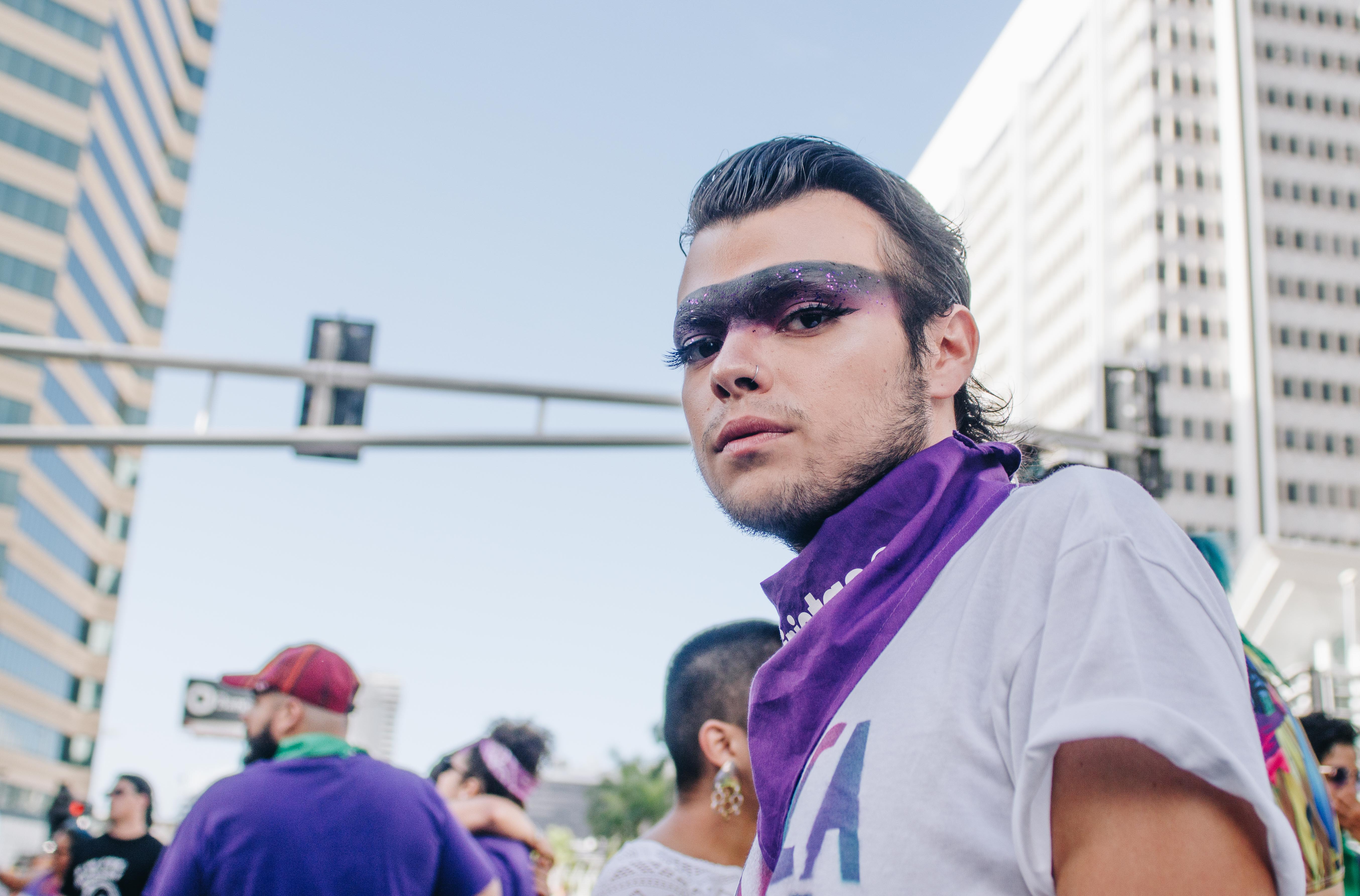
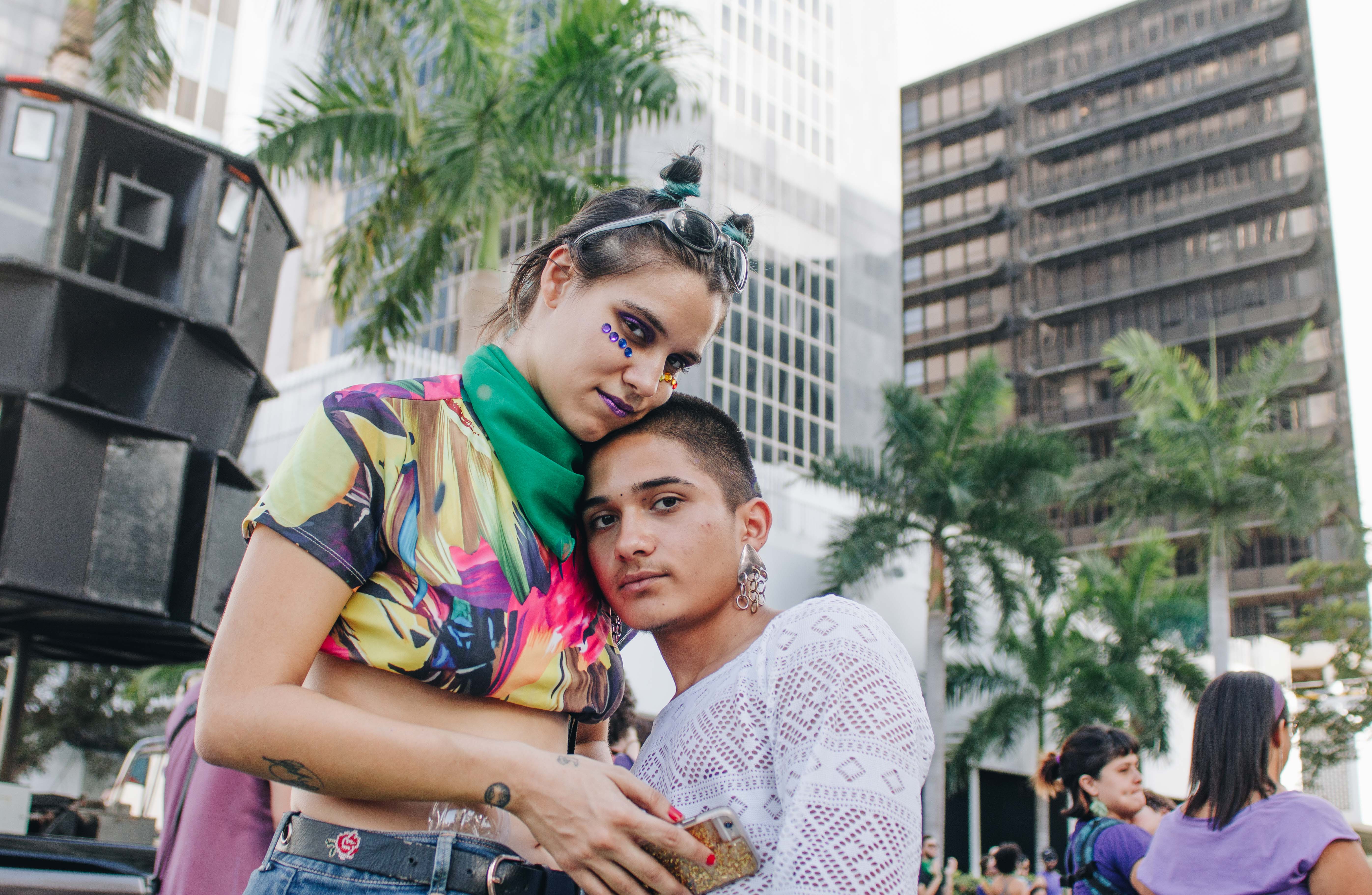
“For me, it’s everything,” she says. “I think one way to start that conversation or to create consciousness in people is through the performance of the runway, and the jayaera, against something that seems so abstract but isn’t, because it precarizes our lives, and even more so the lives of queer people.”
Local artist Macha Colón, who served as Pasarela’s the opening act and MC, praised the event for its celebration of diversity: “I think that we should celebrate that, how unique we can be as people and still come together to fight for something,” she says. “I think that’s the beauty of it, so that it becomes a truly feminist space. To me, feminism has to do with creating a safe space for everyone to feel that they can be who they are. I think that it’s very important for that kind of action to happen in a demonstration.”
There is still room for improvement in that reach for intersectionality and inclusivity. As Nicolas Sierra-Trujillo points out, education about transgender and non-binary people for cisgender people is lacking. He carried a sign that read, “Trans men also need safe and free abortion.”
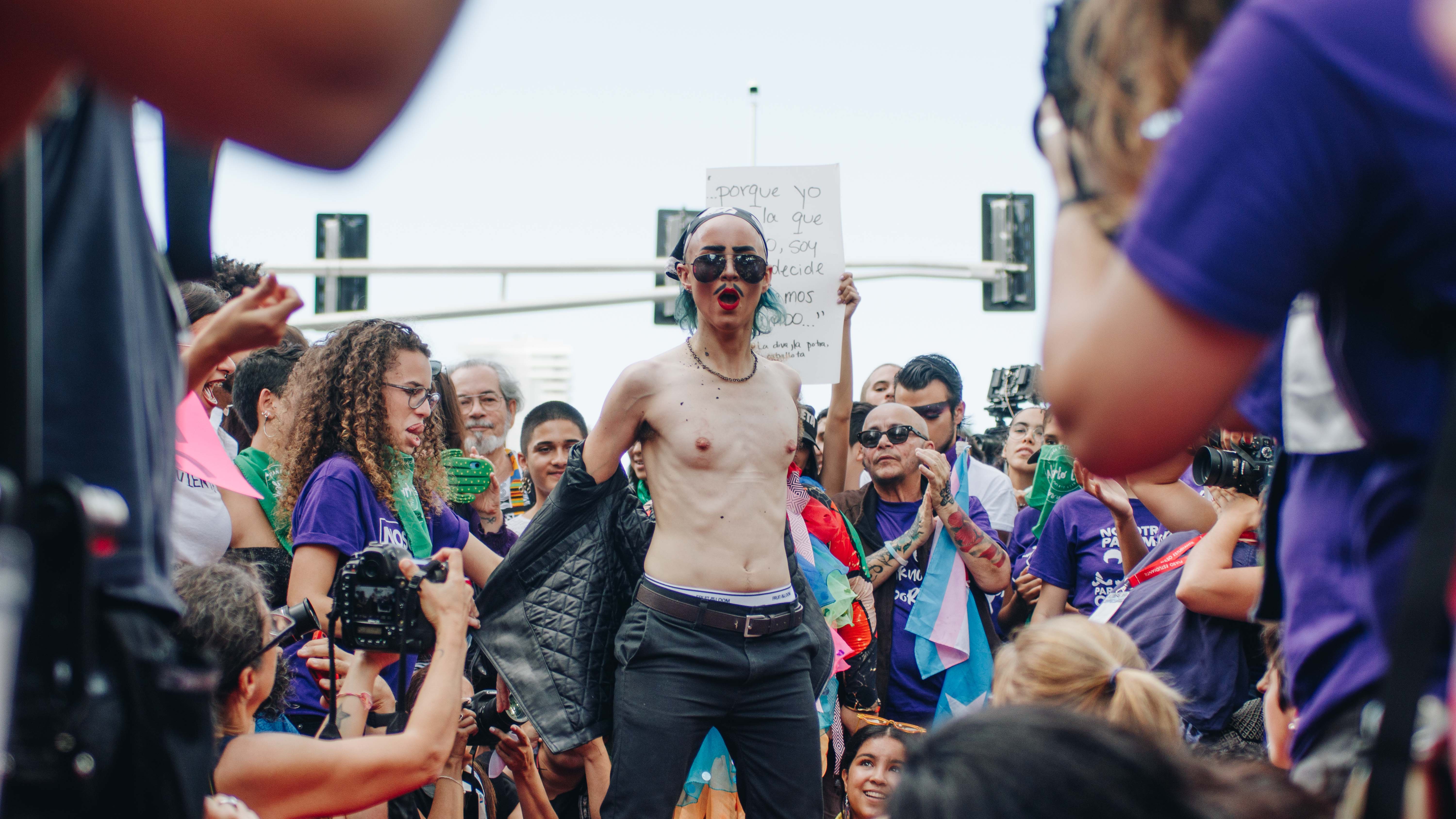
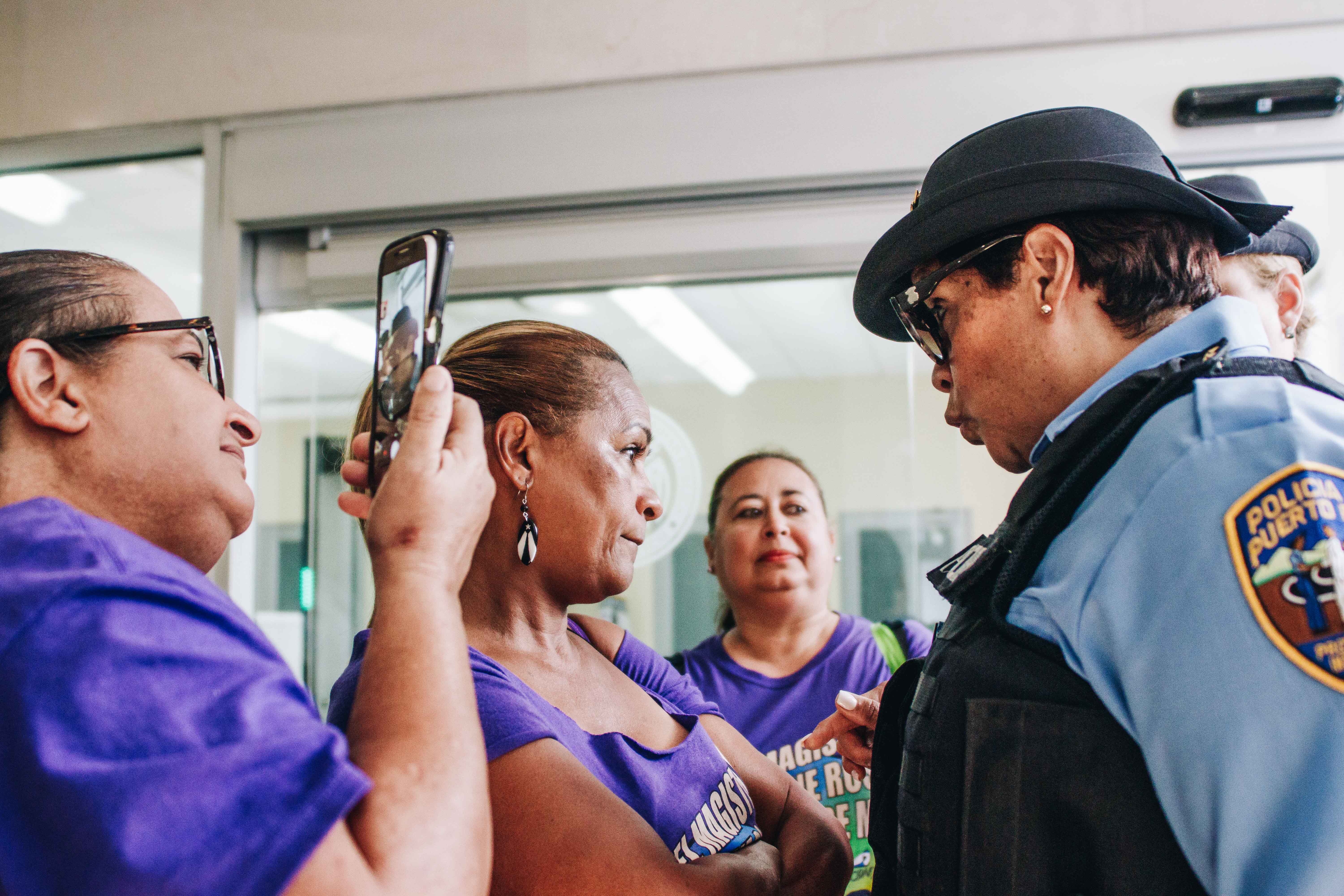
“The people who were shouting out the binary kind of stuff did give me strange looks, and at that point I did feel a little alienating,” he says. “But I think that’s part of the change. It’s going to be shocking, it’s going to be this strange thing for these people that have never been introduced to these terms or this community.”
Katia Cruz Quintana echoes, “I know we’ve rocked the boat. We’ve done it. La lucha radical is being constructed. Is it perfect? No, and it shouldn’t be, because we always want the space to be more radical and more inclusive.”
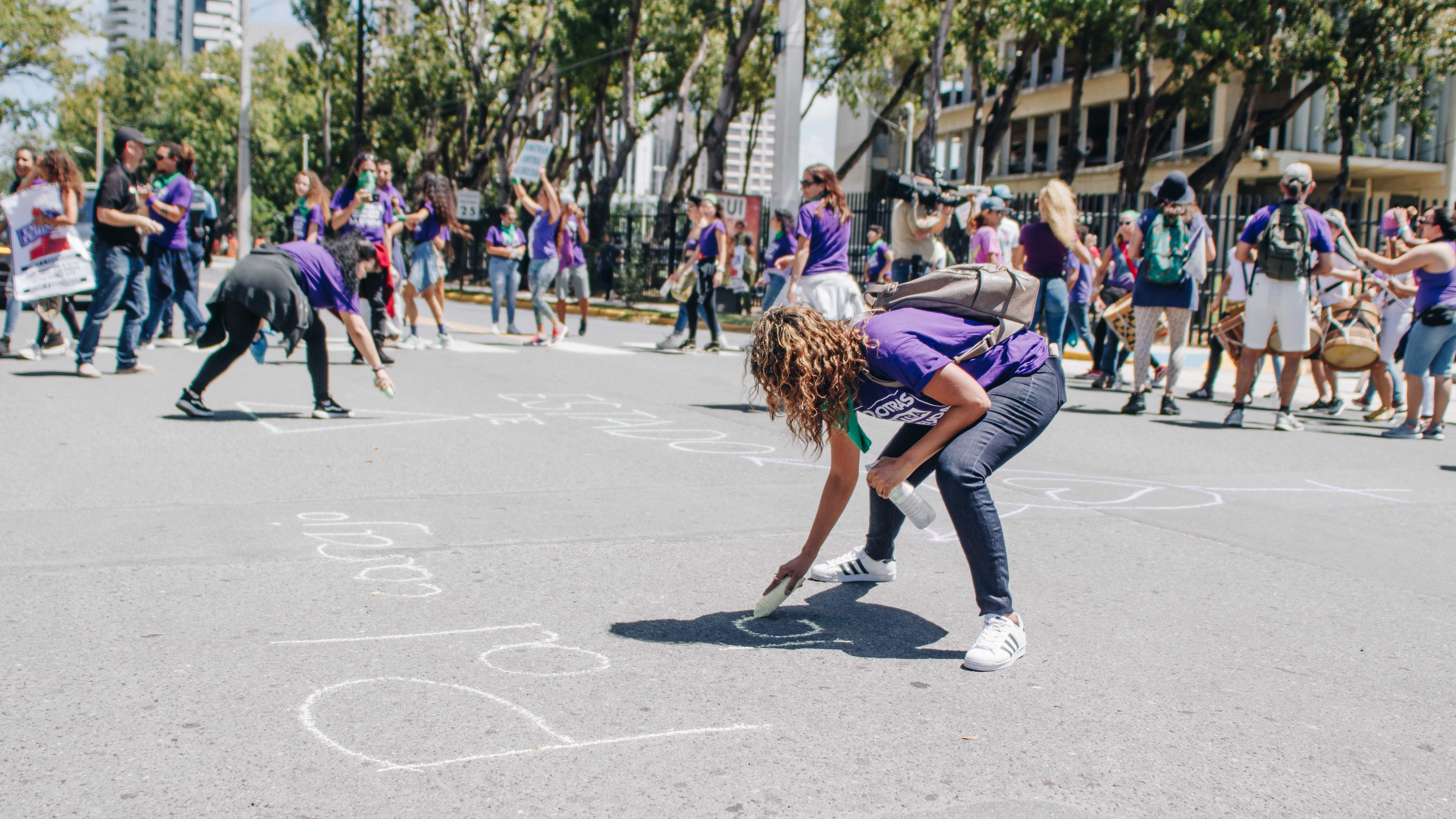
Everyone is needed in the struggle a better future for Puerto Rico – that’s an unchallengeable fact. If practiced with consideration and care, the efforts to envelop the island’s many communities in the larger feminist movement could equate to a bolstering in strength for each individual cause.
“I see shirts that say the future is female, and 100 percent, I love that, and I really enjoy it, but I think it’s still exclusionary” Sierra-Trujillo says. “I think the future is intersectional. The future is including everyone in this conversation because everyone needs to be aware and fight.”
